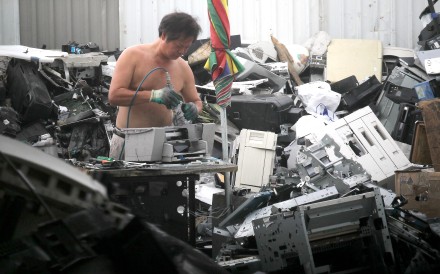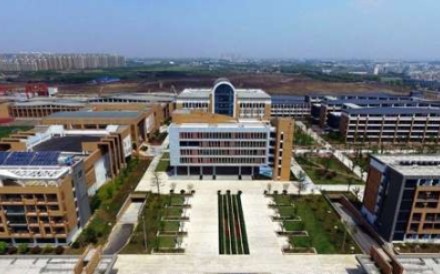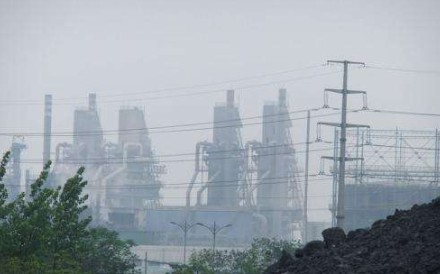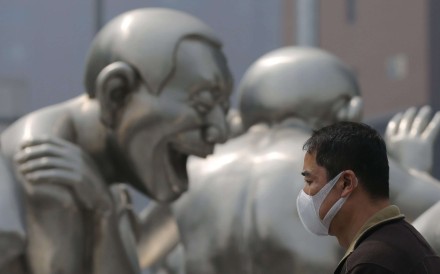Bangladesh Royal AI Club link Intel Glasgow1758-Asia-Ed3dao390
Sir Fazle Abed -top 70 alumni networks & 5 scots curious about hi-trust hi-tech
rector of the Brookings-Tsinghua Center for Public Policy
 Washington D.C. — Qi Ye, a leading expert on China’s environment policy, has been named director of the Brookings-Tsinghua Center for Public Policy, Brookings President Strobe Talbott announced today. The Brookings-Tsinghua Center (BTC) is based in Beijing at the School of Public Policy and Management (SPPM) on the campus of Tsinghua University.
Washington D.C. — Qi Ye, a leading expert on China’s environment policy, has been named director of the Brookings-Tsinghua Center for Public Policy, Brookings President Strobe Talbott announced today. The Brookings-Tsinghua Center (BTC) is based in Beijing at the School of Public Policy and Management (SPPM) on the campus of Tsinghua University.Qi Ye’s research focuses on China’s policies on climate change, environment, energy, natural resources and urbanization. His recent work examines low carbon development in China, including an annual report analyzing how China is balancing its economic growth and environmental challenges. Qi Ye also headed up the design of China’s first low carbon development plan, for the city of Baoding in Hebei Province.
“We are very pleased that Qi Ye has agreed to serve as director of the Brookings-Tsinghua Center,” said Talbott. “Qi Ye is uniquely positioned to lead the Center into a new period of growth and undertake research on the critical issue of China’s energy use and its environmental impact. Qi Ye's leadership of BTC will further strengthen Brookings' deep bench of expertise on China and U.S.-China relations anchored by the John L. Thornton China Center.”
“Qi Ye's appointment will strengthen further BTC's leadership position as a university-based think tank in China,” said Xue Lan, Professor and Dean of Tsinghua SPPM. “In particular, it will enhance BTC's role as a vital bridge between the Brookings Institution and Tsinghua University and take full advantage of the diverse policy experiences at Brookings and Tsinghua to tackle some of the most daunting policy challenges we are facing today.”
Along with his duties as BTC director, Qi Ye serves as the Cheung Kong Professor of Environmental Policy and Management at Tsinghua University’s School of Public Policy and Management. From 1996 through 2003, Qi Ye taught ecosystem management and climate change science at the University of California, Berkeley’s Department of Environmental Science, Policy and Management. Prior to joining the BTC, he was Director, Beijing for the Climate Policy Initiative and Director of the Climate Policy Institute at Tsinghua University.
Dr. Qi received his Ph.D. in Environmental Science in 1994 from State University of New York College of Environmental Science and Forestry and from Syracuse University in New York. A recipient of a NOAA Postdoctoral Fellowship Award (1994) and National Science Foundation Fellowship (1995), Qi Ye studied agriculture, ecology and economics at Hebei Agricultural University, the Chinese Academy of Agricultural Sciences and the Chinese Academy of Sciences.
Dr. Qi publishes extensively on and serves as reviewers for a number of international journals including Science, Nature and Proceedings of National Academy of Sciences,published Environmental Governance in China in 2008, and co-authored a new book, The Governance of Climate Relations between Europe and Asia (2013). He is principal investigator and chief editor of the Annual Review of Low Carbon Development in China which has been published in both English and Chinese since 2010.
Founded in October 2006, the Brookings-Tsinghua Center for Public Policy (BTC) is a partnership between the Brookings Institution in Washington, D.C. and China’s Tsinghua University. Based in Tsinghua’s School of Public Policy and Management, the BTC seeks to produce high-quality and high-impact policy research in areas of fundamental importance for China’s development and for U.S.-China relations. The BTC provides research by Chinese and American scholars on economic and social issues in China’s development, hosts visiting researchers, and holds seminars, panels and conferences that bring together leading policy experts and officials from China and abroad.
-----today when i do random searches there's a lot to look through - i dont understnad the relationship between hong kong and china mainalnd when it comes to whom is most like;y to chnage the world with green
RELATED TOPICS
Daily, we are confronted by shocking statistics on the breadth and depth of China’s pollution challenges. Be it air, soil or water contamination, the problems seem overwhelming and depressing. Here in Hong Kong, we also face multiple environmental issues that directly affect our lives.
Business as usual is clearly unsustainable. There is growing recognition of this fact by individuals, communities, businesses and governments. Encouragingly, in both Hong Kong and mainland China, we are now seeing the emergence of a favourable policy landscape that will help address these challenges.
Why I’m optimistic China can avert an environmental catastrophe
China’s new five-year plan places a heavy emphasis on environmental improvement, requiring greater reductions in the emissions of many pollutants. Its emissions trading programme will expand from seven pilots to nationwide coverage by 2017. China’s place as a world leading manufacturer of wind and solar energy is likely to continue into the future.
Meanwhile, in Hong Kong, the government is executing itsBlueprint for Sustainable Use of Resources with a goal of achieving 55 per cent recycling of waste by 2022 and improving the city’s waste infrastructure. In part, these goals are aimed at reducing the city’s reliance on landfill sites, which are rapidly reaching capacity and will require extension.

Hong Kong’s first e-waste plant to be built by German recycling fir...
Each year, Hong Kong households and businesses throw away more than 70,000 tonnes of electrical and electronic equipment, including televisions, refrigerators and computers. That’s almost 10kg per man, woman and child living in our city. This waste contains valuable and harmful materials which, if not properly treated or disposed of, are hazardous to the environment and human health.
The Hong Kong government must be applauded for tackling this issue head-on through the implementation of a producer responsibility scheme for waste electrical and electronic equipment. It means that when a piece of electrical or electronic equipment is sold in Hong Kong, the supplier will pay a recycling fee to help fund the collection and recycling of the product at the end of its life. As part of the new scheme, a treatment and recycling facility for such waste is being built in Tuen Mun. It will be tasked with recycling up to 56,000 tonnes of this type of waste each year.
Young Hongkongers lagging the old in adapting to green lifestyle
In my home country of Germany, the introduction of a producer responsibility scheme in the 1990s was a watershed moment that helped transform Germany into a world leader in waste management. Being in Hong Kong, I often hear from people that China’s pollution problems are intractable. I do not agree. It is worth remembering that Germany in the 1970s was one of the most polluted countries on the planet, yet today it leads the world in green technology and environmental best practice.

Green business to reap China’s environmental policy rewards
While there are undoubtedly major challenges, it is my view that China will soon be a world leader in this field, achieving its environmental transformation in a shorter time frame than Germany was able to. China has the opportunity to adopt the latest technology that can extract all recyclables from waste streams and turn the remaining waste into green fuel pellets. It can leapfrog other countries by moving from incineration of waste to third-generation treatment in one go and avoid Germany’s mistakes.
Advanced waste management and recycling technologies will also allow China to reduce its reliance on raw material imports as industry captures resources currently buried in landfills for reuse.
I believe the future looks bright for the environment in China. The public has an appetite for a cleaner, more liveable environment and policymakers have started to respond with positive, concrete action. However, we must remain vigilant to ensure consistent progress towards sustainability, no matter what economic cycle we find ourselves in. We need to achieve the golden triangle – strong leadership from our governments, implementation of effective solutions by industry and maintaining the support of the population.
Dr Axel Schweitzer is co-CEO of Alba Group, a world leading German waste management and recycling company which has been awarded the contract to run Hong Kong’s waste electrical and electronic equipment recycling facility. Dr Schweitzer lives in Hong Kong
Views: 18
© 2026 Created by chris macrae.
Powered by
![]()





